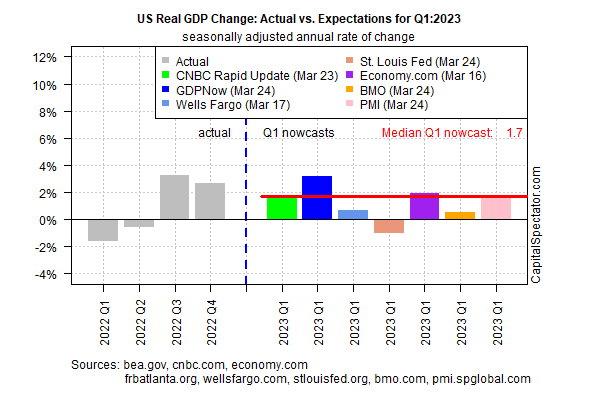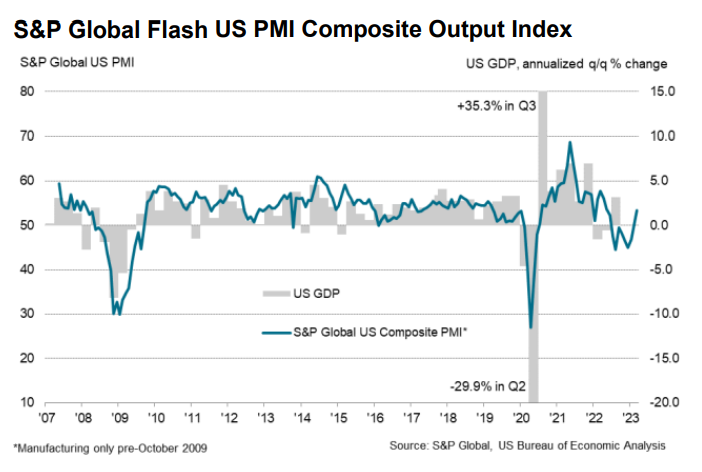[ad_1]
Regardless of warning indicators flashing from a number of indicators, the U.S. economic system is predicted to report average progress in subsequent month’s “advance” GDP report for the primary quarter, primarily based on a set of nowcasts compiled by CapitalSpectator.com.
The median estimate for Q1 firmed as much as a 1.7% acquire in at this time’s replace (seasonally adjusted annual charge). Though the projection marks a slowdown from the two.7% improve reported for , at this time’s revision means that the economic system will proceed to skirt a recession within the first three months of the 12 months.

U.S. Actual GDP Change
Notably, at this time’s revised median nowcast firmed up from the weak 0.5% estimate posted within the .
Optimists will concentrate on the strongest nowcast within the chart above: the Atlanta Fed’s GDPNow mannequin, which is projecting a 3.2% improve in Q1 output for the upcoming launch on April 27. If right, this estimate would mark an acceleration in output vs. final 12 months’s ultimate quarter.
Total, at this time’s median nowcast means that the economic system stays resilient after a 12 months of comparatively sharp, fast interest-rate hikes by the . In flip, the resilience implies that the case for pausing, a lot much less reducing, rates of interest is weaker than some market indicators counsel.
“We don’t see charge cuts this 12 months – that’s the previous playbook when central banks would rush to rescue the economic system as recession hit,” BlackRock suggested in a notice for shoppers. “Now they’re inflicting the recession to battle sticky and that makes charge cuts unlikely, in our view.”
In the meantime, “March has to date witnessed an encouraging resurgence of financial progress, with the enterprise surveys indicating an acceleration of output to the quickest since Could of final 12 months,” says Chris Williamson, chief enterprise economist at S&P International, which final week revised its U.S. Composite PMI, a GDP proxy. PMI’s implied progress for U.S. output in Q1 is 1.7%, primarily based on analytics run by CapitalSpectator.com.

Though the Q1 GDP outlook stays comparatively upbeat, various indicators are nonetheless signaling elevated recession danger. An inverted , for instance, continues to forecast financial contraction for the close to time period.
One other headwind is the anticipated pullback in lending, as a result of latest financial institution turmoil after the collapse of Silicon Valley Financial institution. Minneapolis Fed President Neel Kashkari earlier this week mentioned that elevated stress within the banking sector raises recession danger for the U.S.
The query is when or if these and different danger elements will take a chunk out of GDP nowcasts.
[ad_2]
Source link




